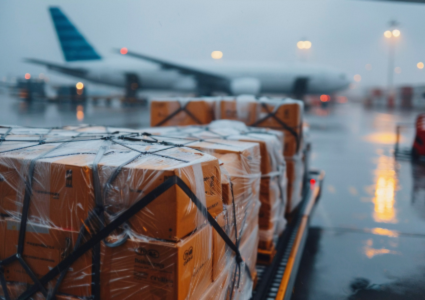
Why Turkey Is a Strategic Export Powerhouse
Turkey’s position at the crossroads of Europe, Asia, and the Middle East makes it one of the most strategically placed export hubs globally. With increasing demand for Turkish goods in GCC, EU, North Africa, and Central Asia, Turkish exporters must align with evolving trade policies and global compliance requirements.
In 2025, exporters must stay current with Turkish Ministry of Trade rules, destination country standards, and international documentation norms.
Top Export Destinations from Turkey (2024–2025)
| Region | Countries | Key Goods Exported |
| MENA | Saudi Arabia, UAE, Iraq, Egypt | Construction materials, textiles, machinery |
| EU | Germany, Italy, France | Automotive parts, appliances, garments |
| Asia | China, Kazakhstan, Uzbekistan | Raw materials, machinery, food items |
| Africa | Libya, Algeria, Nigeria | Ceramics, chemicals, household items |
Turkey’s free trade agreements and customs union with the EU facilitate smooth clearance, but exporters must prepare properly.
Required Documents for Export from Turkey (2025)
Every export shipment from Turkey must include the following, as per the Ministry of Trade:
- Commercial Invoice
- In English and the target market’s language
- Packing List
- Export Declaration Form (Beyanname)
- Filed digitally via Turkish Customs (BİLGE system)
- Certificate of Origin
- Issued by a Chamber of Commerce
- EUR.1 or ATR Certificate (for EU customs benefits)
- Freight Document (Bill of Lading, CMR, or AWB)
- Product Compliance Documents (if needed):
- CE Certificate, Halal, ISO, SFDA/SABER for GCC
- Export License or Registration (for restricted products)
Exporting to the GCC from Turkey: Special Notes
When shipping to Saudi Arabia, UAE, or Qatar, exporters from Turkey must meet:
- SFDA and SABER registration for food, electronics, cosmetics
- Arabic labeling compliance (mandatory)
- Shipping documents that match SABER entries exactly
- Halal certification for meat, cosmetics, and some chemicals
Syrmex provides turnkey support for Turkish exporters navigating Gulf trade.
Free Zones in Turkey: Tax Benefits & Export Efficiency
Exporting from Turkish free zones like Istanbul Atatürk Free Zone, Mersin Free Zone, or Ege Free Zone can offer:
- VAT and customs exemption
- Simplified customs clearance
- Full foreign currency operations
- No import duties for raw materials
These benefits make free zones ideal for global re-export operations.
Customs Compliance & Turkish Export Law 2025 Updates
The 2025 Turkish Customs Regulations enforce the following:
- Electronic document filing only (via BİLGE and EDI)
- Mandatory exporter registration with the Ministry of Trade
- Product-specific export restrictions (chemical, military-grade)
- New AI-powered customs inspections for high-risk goods
- Requirement for end-user declarations in sensitive exports
Non-compliance can lead to shipment blocks, financial penalties, and company blacklisting.
Syrmex Turkey: Your Local Export Compliance Partner
Syrmex operates directly in Turkey and offers:
- End-to-end export compliance consulting
- Customs clearance via BİLGE system
- Certificate of Origin & ATR/EUR1 handling
- Destination-specific document prep (SFDA, CE, Halal, etc.)
- Liaison with Turkish Chambers and trade platforms
Get in touch with our Turkish Export Compliance Team →
Common Export Mistakes from Turkey & How to Avoid Them
| Mistake | Solution |
| Incomplete export declaration | Use certified customs agents |
| Missing CE or SABER certification | Verify product-specific requirements early |
| Incorrect country of origin marking | Ensure factory and invoice alignment |
| No Arabic label for MENA shipment | Localize packaging per market rules |
| Improper invoice format | Follow Ministry of Trade invoice standards |
Step-by-Step Export Workflow from Turkey
- Prepare all documents (invoice, CO, certificate)
- Register in BİLGE customs system
- File electronic Export Declaration (Beyanname)
- Get necessary chamber and ministry approvals
- Coordinate with freight forwarder
- Track customs clearance and submit any follow-ups
Conclusion: 2025 Is a Year of Growth for Turkish Exporters
Whether you’re shipping heavy machinery to Saudi Arabia or textiles to Germany, Turkish exporters must focus on accuracy, digital compliance, and localized documentation.
Partnering with a logistics firm like Syrmex that understands both Turkish and destination-country laws can eliminate costly delays.





